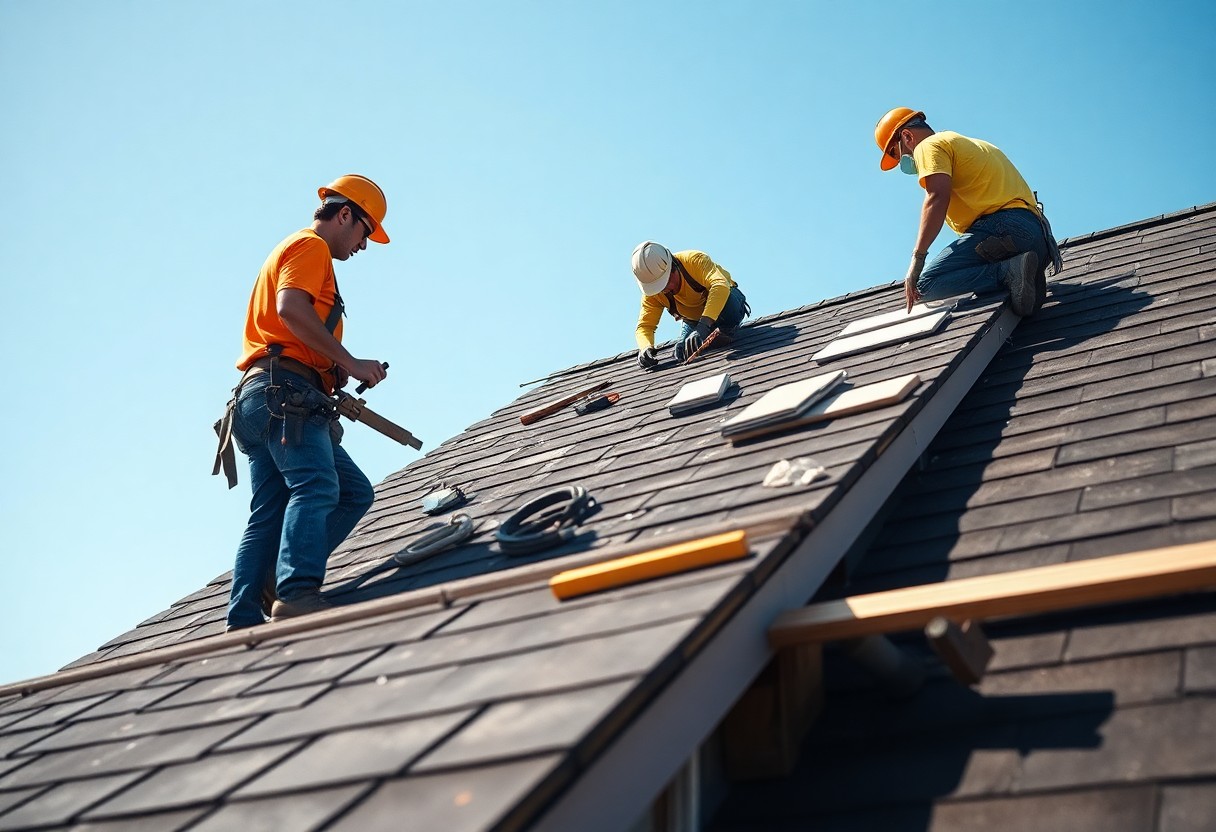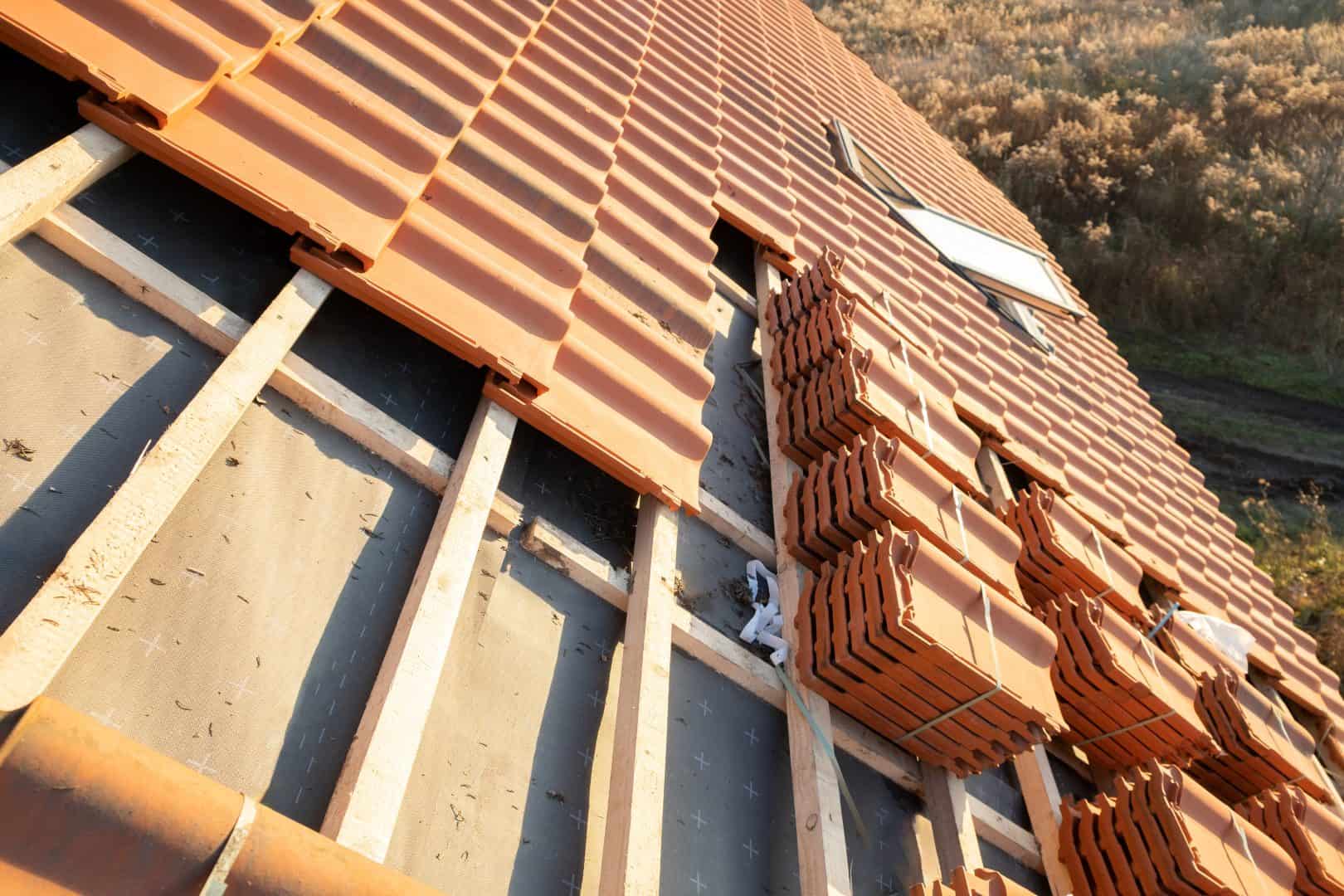How long will it take to install a new roof?
Fill Out The Form And We'll Get Back To You

Most homeowners wonder how long it will take to install a new roof, as this major project can significantly impact your home. The duration of the installation process can vary depending on several factors, including the size and type of roof, weather conditions, and the availability of materials. Understanding these elements will help you prepare for the timeline involved, ensuring you can effectively plan for the work and any necessary arrangements during the roofing process.
Factors Affecting Installation Time
The time it takes to install a new roof can vary significantly based on several factors, including:
- Roof size
- Complexity of the design
- Type of roofing material
- Weather conditions
- Accessibility of the roof
Knowing these elements will help you better estimate the overall duration of your roofing project.
Roof Size and Complexity
By evaluating the size and complexity of your roof, you can determine the likely installation timeframe. A larger or more intricate roof design typically requires more time, as it involves additional materials and labour.
Type of Roofing Material
Before choosing your roofing material, consider how it affects installation time. Different materials come with unique installation processes, which can vary in duration and complexity.
Understanding the characteristics of various roofing materials is vital. For example, asphalt shingles can be quicker to install compared to slate or tile, which may require more precision and time to lay properly.
Weather Conditions
Before beginning your roofing project, you should assess the expected weather conditions. Rain, snow, or extreme heat can cause delays in installation.
Complexity regarding weather conditions can necessitate rescheduling work to ensure safety and effectiveness. Certain materials may not adhere well in wet conditions, while excessive heat might affect the handling of specific products, ultimately prolonging the installation process.
Accessibility of the Roof
One factor to consider is the accessibility of your roof. Roofs that are hard to reach or have unique features may complicate the installation process.
Size can impact access considerably. For instance, steep or multi-level roofs typically require more equipment and safety measures, resulting in extended installation time. The more challenging it is for workers to reach your roof, the longer the entire project is likely to take.
Average Timeframes for Different Roofing Projects
You may find that the time it takes to install a new roof can vary significantly based on the type of project. Generally, residential roofing projects can be completed within a week to ten days, depending on the complexity and size of your home. Factors like weather conditions and the type of materials selected will also influence the timeframe.
Residential Roofing
To ensure a smooth installation, it’s advisable to choose reliable roofing contractors who can efficiently manage the project. Simple roofing jobs may take less time, while more complex designs could extend the timeline slightly. Engaging in thorough preparations can also speed up the process.
Commercial Roofing
With commercial roofing projects, you should anticipate a longer timeframe due to the scale and intricacies involved. These installations often require more extensive safety measures and structural assessments, which can extend the overall duration. Typically, commercial roofs can take anywhere from a few days to several weeks to complete.
And bear in mind that factors like the building’s size, type of roofing system, and accessibility can all influence the total time required for a commercial roofing project. If your property operates under certain regulations or needs specific permits, this may also impact the installation duration. Careful planning and communication with your roofing contractor can significantly enhance efficiency, helping to keep your project on schedule.
Comparison of DIY vs. Professional Installation
Not all roofing projects are suited for DIY enthusiasts. While undertaking the work yourself can save money, professional installation often ensures a more efficient and safer process. Below is a comparison of both approaches:
| DIY Installation | Professional Installation |
|---|---|
| Potentially cost-effective | Higher upfront costs |
| Longer time for completion | Generally quicker installation |
| Requires specific skills and tools | Expertise and professional equipment |
Time Estimates for DIY
Along with saving money, a DIY roofing project generally takes longer due to your inexperience and the learning curve involved. Depending on the size and complexity of your roof, it may take anywhere from several days to a few weeks. For more detailed insights, check How Long Does it Take to Replace a Roof?.
Time Estimates for Professionals
Any roofing professionals can typically complete your installation much faster, often finishing within a few days, depending on weather conditions and roof size. Their experience contributes to an efficient process.
Consequently, hiring professionals can significantly reduce the time spent on your roofing project. They have a trained team and expertise to navigate potential obstacles quickly, ensuring your roof is installed correctly and promptly. This allows you to return to your routine sooner without the stress of managing the project yourself.
Importance of Proper Planning
After investing in a new roof, proper planning will ensure a smooth installation process. With clear timelines and expectations, you can avoid potential issues and delays. Understanding the timeframes can significantly impact your home renovation experience. For insights on how long it takes to tear off and replace a roof, you can gather necessary information that aids in your planning.
Scheduling and Timing
Importance of scheduling cannot be overstated, as aligning your project with favourable weather conditions will expedite the process. Consider the peak seasons for roofing in your area to avoid delays.
Choosing the Right Contractor
One of the key steps in ensuring a successful roof installation is choosing the right contractor. Engaging a skilled and reputable professional can greatly influence the outcome of your project.
Hence, it is advisable to conduct thorough research on potential contractors. Look for reviews, ask for references, and verify their credentials. A professional who communicates effectively and offers a detailed quote will contribute to your peace of mind throughout the roofing process. Selecting an experienced contractor will ensure the work is completed efficiently and meets all quality standards.
Consequences of Delays in Installation
For homeowners, delays in roof installation can lead to various challenges. Not only can it postpone your plans, but it can also exacerbate existing issues. Moisture can accumulate, leading to further damage within your home. You can explore more about the timelines involved in roofing projects by checking out How Long Does It Take to Replace a Roof?.
Potential Cost Implications
Consequences of delays may significantly impact your financial situation. Extended exposure to the elements can lead to additional damage, which could result in unforeseen repair costs. This financial burden can strain your budget, making timely installation even more necessary.
Impact on Home Structure
By postponing your roof installation, you risk compromising your home’s structural integrity. A leaking or damaged roof can allow water to infiltrate, weakening support beams and causing mould growth. This situation can create a cascade of issues, leading to more extensive repairs and a higher likelihood of needing to replace parts of your home.
At times, the impact on your home structure can be severe. If overlooked, the integrity of your entire property could be at stake. Furthermore, foundational issues may arise if water seeps into your home, creating an environment conducive to pests and rot. Prioritising timely roof installation not only safeguards your investment but also ensures the long-term stability of your home.
Frequently Asked Questions
To help you better understand the roofing installation process, you may have some questions regarding timelines, materials, and potential disruptions. It’s common to wonder how weather might affect the project or if your old roof needs complete removal. You may also ask about the best materials for your home and how to maintain your new roof in the long run. By addressing these concerns, you can prepare yourself for a smoother roofing experience and ensure you’re making informed decisions that suit your needs and preferences.
To wrap up
The time it will take to install a new roof largely depends on the size of your property and the complexity of the roofing system you choose. Generally, you can expect the installation to take anywhere from a few days to a couple of weeks. Factors such as weather conditions, the type of materials used, and the pressure of existing projects can also influence the timeline. Therefore, discussing your specific situation with a roofing contractor will provide you with a clearer understanding of what to expect for your new roofing project.
FAQ
Q: How long does it typically take to install a new roof?
A: The time required to install a new roof can vary significantly depending on several factors, such as the size and complexity of the roof, the type of materials used, and the weather conditions. On average, a straightforward residential roof replacement may take anywhere from one week to two weeks. However, if the roof has intricate designs or if there are complications such as extensive repairs needed on the underlying structure, the installation could take longer.
Q: Does the type of roofing material affect the installation time?
A: Yes, the choice of roofing material can greatly influence the duration of the installation process. For instance, asphalt shingles can often be installed relatively quickly, usually within a week, while more complex materials like slate or metal roofing might require additional time due to the specialised skills and techniques needed. Additionally, some materials may require specific weather conditions for installation, which could further impact the timeline.
Q: Are there any factors that might delay the roof installation process?
A: Several factors can potentially delay the installation of a new roof. Bad weather, such as heavy rain or storms, can halt work for safety reasons. Furthermore, if unexpected damages are discovered during the removal of the old roof—such as rot or structural issues—additional repairs will need to be made before proceeding, thus extending the overall installation time. Other factors include the availability of materials and the scheduling of the roofing crew.
Re-Roof of Bungalow
The guys made a fantastic job of replacing the roof on our bunglaow. They were fasy, relaible and excellent value for money.
Chimney Removal
We employed Wrights Roofs to take down our very old chimney – tht had seen better days. They carefully removed and made good the area where the chimney was. Really impressed.
New Roof
We had an extension built and Wrights came and put a new roof on. They were brilliant, no fuss, great value for money. Thank you.
Roofs, Flat Roofs Chimneys and Solar Panels
If you need roof work on your home, please complete the form or call us today.

